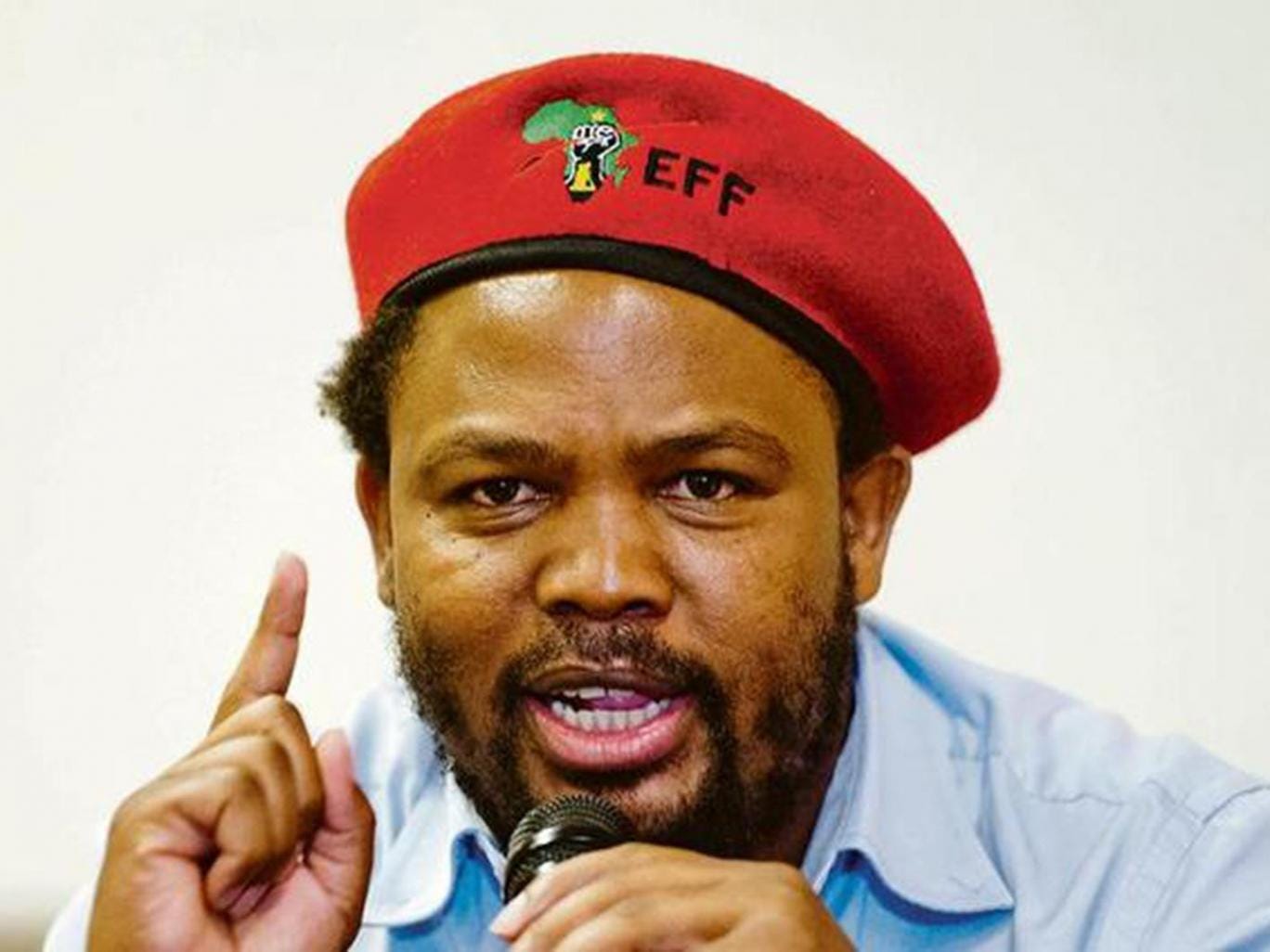Black South African politician Andile Mngxitama calls for Mugabe-style ‘land grab’
Exclusive: Andile Mngxitama, the leader of the Black First Land First party has set out a list of demands that include ‘land expropriation without compensation’ as tensions rise following recent municipal elections
- Thomas Harding Johannesburg
- 248 comments
|
|
|
|

Andile Mngxitama, the leader of Black First Land First has set out a list of demands that include “land expropriation without compensation” and nationalisation of the mainly white-owned mines and banks. Whites own an estimated 80 per cent of farmland.
ADVERTISING
inRead invented by Teads
His call comes as tensions increase in South Africa following municipal elections at the start of this month, and as the pressure grows for the white-dominated Democratic Alliance to go into coalitions with the radical black Economic Freedom Fighters led by Julius Malema.
 Read more
Read moreMugabe: There will be no 'Arab Spring' in Zimbabwe
A coalition is likely after the ruling African National Congress, the party of Nelson Mandela, has suffered its worst election result winning 54 per cent of the vote earlier this month. Many black loyalists are angry that they have not achieved economic emancipation two decades after apartheid ended.
Mr Mngxitama, whose party has its powerbase in Soweto, opposes any coalition between the Economic Freedom Fighters and the “racist, anti-black” Democratic Alliance as it would “strengthen the hand of white supremacy”.
He said: “I call on our people to end white racism and to enforce the return of our land. If the unlikely partners form a coalition they could control former ANC strongholds of Johannesburg, Pretoria and Port Elizabeth.”
World news in pictures
Mr Mngxitama, who criticises the ANC for failing to “use its power to advance black liberation”, warned that a coalition with Democratic Alliance would only “benefit the same people who have benefited from stealing our land”.
In the lead up to the 3 August municipal elections, 13 ANC politicians were murdered and the South African Broadcasting Corporation put a ban on broadcasting attacks on government buildings, fearing it would provoke more violence.
South Africa’s 55 million population is 77 per cent black and nine per cent white, but blacks are becoming increasingly frustrated at inequalities. Many get half the pay of whites, only three per cent of the Johannesburg Stock Exchange is black-owned, and the four major banks are white-dominated.
Justice Piitso, of the South African Communist Party, aligned to the ANC, said: “A severe storm is coming if the elite does not further black economic empowerment.
Read more
- South Africa elections: Historic ANC loss as opposition wins in Nelson Mandela's birthplace for first time since Apartheid
- Drought devastates Lesotho as water is exported to South Africa
- Jacob Zuma: the rise and near fall of South Africa’s President
“Whites still own the mines, tourism, our livestock, the land, the air, the sea. If they don’t reform the economy this country will explode.”
South Africa’s white minority has also been warned by mainstream ANC politicians that they face an “uprising” if they fail to make urgent reforms to end “economic apartheid”.
ANC leaders are now urging radical reforms, including nationalisation of industry, to win back the black vote.
Kebby Maphatsoe, the veterans’ minister, said: “We are very, very worried if we don’t do anything to change our economy from being in the hands of the minority we will have our people uprising.”
This is a modal window.
This video is either unavailable or not supported in this browser
Error Code: MEDIA_ERR_SRC_NOT_SUPPORTED
South Africa: Pressure mounts on ruling ANC after election losses
There are an estimated 1.6 million British expats living in South Africa. Some are nervous that calls for “land grabs” could destabilise the country.
“There is a danger of racial tension getting out of hand where people point to the whites and demand their land back,” said David Mitchell. “It could make living here very difficult.”
The ANC, led by the controversial Jacob Zuma, will face its next major test in the 2019 general election.




Comment